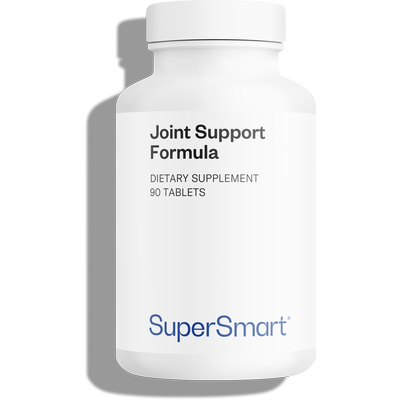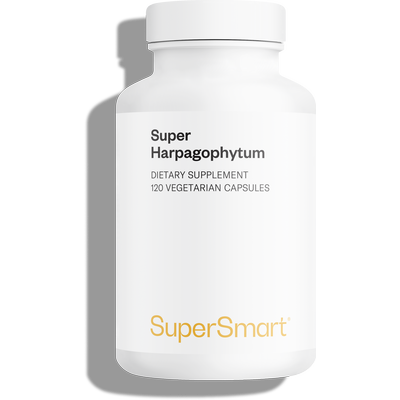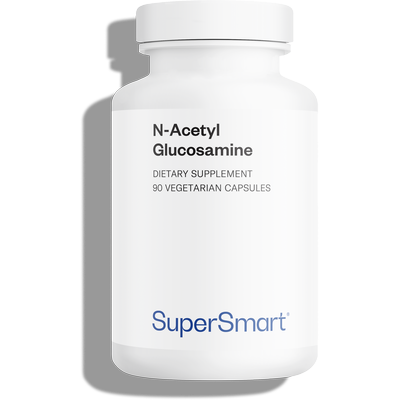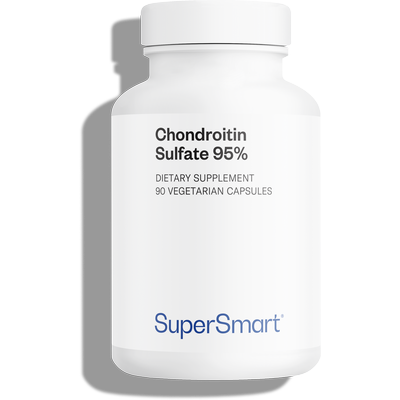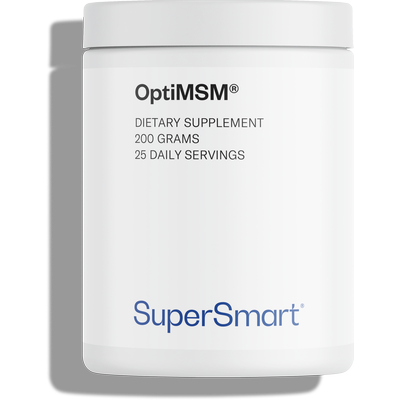31-08-2016
Arthritis pain: beware of misinformation
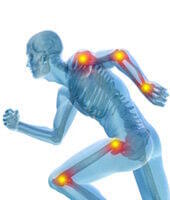 Some weeks ago, a new study was published on the management of arthritis-related pain. Arthritis is one of the three most incapacitating conditions and is probably the leading cause of locomotor disability. Those affected by the condition, and that includes more than 85% of all over-80s, know just how painful it is. Sufferers can be in such agony that at any moment, they may have to give up the daily activities they enjoy so much; in short, it can rob them of their zest for life. Nevertheless, arthritis sufferers are also potential consumers just like any others .
Some weeks ago, a new study was published on the management of arthritis-related pain. Arthritis is one of the three most incapacitating conditions and is probably the leading cause of locomotor disability. Those affected by the condition, and that includes more than 85% of all over-80s, know just how painful it is. Sufferers can be in such agony that at any moment, they may have to give up the daily activities they enjoy so much; in short, it can rob them of their zest for life. Nevertheless, arthritis sufferers are also potential consumers just like any others .This is probably a view shared by the researchers behind this study 1 on drug preparations. In a less than persuasive introduction, they outline their desire to establish which pain-relief drugs are most effective by using a meta-analysis of studies already conducted on the subject. Nothing wrong with their intentions. But hundreds of calculations later, they conclude that: at a dose of 150mg/day, diclofenac is " currently the most effective NSAID for arthritic pain both in terms of relieving pain and improving function ". They also state that paracetamol has no meaningful effect on pain symptoms, whatever the dose taken.
This is an astounding conclusion.. Are we really talking about the same drug that provoked a storm a few years ago because of its association with an increased risk of cardiovascular disease 2? Is this the same medication about which the French Rheumatology Society became so exercised, the one which may quadruple the risk of cardiovascular mortality? The very same. Of course the knowledgeable reader will refuse to take this conclusion at face value. They will analyse, dissect, and scrutinise. And in doing so, they will discover that the study was funded by the Swiss National Science Foundation and that interestingly, diclofenac is marketed in France under the trade name Voltarène by Novartis … a Swiss pharmaceutical group.
Exposing misinformation
Unfortunately, some journalists are not quite so astute. Ignoring principles on which their profession has long been based, they seem content to scan - and passively accept - the study’s conclusions. Which is why we see France TV, for which viewers have to pay a licence fee and which is required to comply with its public service obligations, reporting: " Arthritis: the best pain relief treatment is … diclofenac ". Bingo! Just the kind of headline the study’s authors wanted. Yet anyone who is familiar with the issue will realise just how much this headline constitutes misinformation. In reality, this drug has been shown to have numerous - and dangerous - side-effects, to be contraindicated for those at risk of cardiovascular disease (arterial hypertension, hyperlipidaemia, diabetes mellitus) or individuals taking several medications (which is most of those affected by arthritis) and, in any event, to be appropriate only for short-term, low-dose use. In other words, it is in no way the best treatment for arthritis pain …Relaxation and phytotherapy
It is also regrettable that the study’s authors and journalists have shown such a lack of perspective regarding this idea of the ‘best’ treatment for pain. Pain is actually a highly complex experience influenced by personality, genetics, previous experiences of pain and fears about future pain3, 4. Since anxiety or depression can affect expression of pain, there is increasing interest in treatments which are not directly aimed at pain itself but at psychological states. A number of independent studies have thus demonstrated the benefits of psychological interventions such as b>relaxation, hypnosis and physical activity for indirectly reducing pain 5-7. Long-term treatments that are clearly free from any side-effects. Some phytonutrient products combine a number of the most widely-studied natural extracts for supporting joint health (glucosamine sulphate, derivatives of marine exoskeletons, and MSM, tiny amounts of which are round in many foods). One such product is Joint Support Formula which is based on extensive and reliable research 8-10. Unlike diclofenac, it has practically no side-effects and can be taken long-term. Here again, well-informed readers will judge this product’s efficacy for themselves, as so many have before them: Ayurvedic medicine, considered the oldest holistic system of medicine in the world, has relied on these natural products for thousands of years11.References
1. Da Costa BR, Reichenbach S, Keller N, et al. Effectiveness of non-steroidal anti-inflammatory drugs for the treatment of pain in knee and hip osteoarthritis: a network meta-analysis. The Lancet 2016;doi.10.1016/S0140-6736(16)30002-2.
2. Patricia McGettigan, David Henry, Use of Non-Steroidal Anti-Inflammatory Drugs That Elevate Cardiovascular Risk: An Examination of Sales and Essential Medicines Lists in Low-, Middle-, and High-Income Countries, PLoS Med. 2013;10(2):e1001388.
3. Diatchenko L, Nackley AG, Slade GD, Fillingim RB, Maixner W. Idiopathic pain disorders--pathways of vulnerability. Pain. 2006;123(3):226–30.
4. Diatchenko L, Slade GD, Nackley AG, Bhalang K, Sigurdsson A, Belfer I, et al. Genetic basis for individual variations in pain perception and the development of a chronic pain condition. Hum Mol Genet.2005;14(1):135–43
5. . Gay MC1, Philippot P, Luminet O. Differential effectiveness of psychological interventions for reducing osteoarthritis pain: a comparison of Erikson [correction of Erickson] hypnosis and Jacobson relaxation. Eur J Pain. 2002;6(1):1-16.
6. Graham R, Kremer J, Wheeler G. Physical exercise and psychological well being among people with chronic illness and disability: a grounded approach. J Health Psych. 2008;13:447–58.
7. Salmon P. Effects of physical exercise on anxiety, depression, and sensitivity to stress: a unifying theory.Clin Psych Rev. 2001;21:33–61.
8. McAlindon TE, LaValley MP, Gulin JP, Felson DT. Glucosamine and chondroitin for treatment of osteoarthritis: a systematic quality assessment and meta-analysis. JAMA 2000;283:1469-75.
9. Lopes Vaz A. Double-blind, clinical evaluation of the relative efficacy of ibuprofen and glucosamine sulphate in the management of osteoarthrosis of the knee in out-patients. Curr Med Res Opin 1982;8:145-9.
10. Nandhakumar J. Efficacy, tolerability, and safety of a multicomponent antiinflammatory with glucosamine hydrochloride vs glucosamine sulfate vs an NSAID in the treatment of knee osteoarthritis--a randomized, prospective, double-blind, comparative study. Integr Med Clin J 2009;8(3):32-38.
11. Chopra A, Saluja M, Tillu G, Sarmukkaddam S, Venugopalan A, Narsimulu G, Handa R, Sumantran V, Raut A, Bichile L, Joshi K, Patwardhan B. Ayurvedic medicine offers a good alternative to glucosamine and celecoxib in the treatment of symptomatic knee osteoarthritis: a randomized, double-blind, controlled equivalence drug trial. Rheumatology (Oxford) 2013;52(8):1408-17.
Order the nutrients mentioned in this article
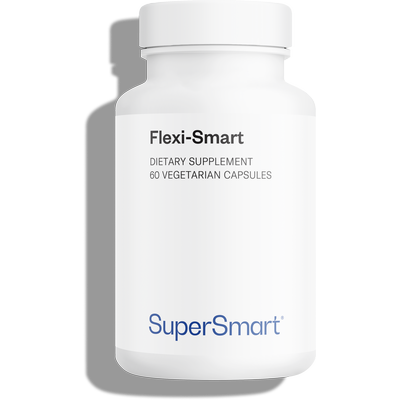
New formulation: a natural concentrate essential for those with joint problems
www.supersmart.comFurther reading
24-06-2019
Better known as PEA, palmitoylethanolamide is a natural and powerful active principle discovered in 1957. Since then, it has consistently been the subject of new...
Read more01-08-2018
Inflammation – whether unseen or painful – has always been at the root of a variety of incapacitating ‘diseases of civilisation’, such as cardiovascular disease,...
Read more29-07-2019
Magnesium has until now been mainly known as an essential mineral for nervous system balance, cardiovascular regulation, muscle function and bone health. Now it seems...
Read more© 1997-2025 Fondation pour le Libre Choix
All rights reserved
All rights reserved
Free
Thank you for visiting our site. Before you go
REGISTER WITHClub SuperSmart
And take advantage
of exclusive benefits:
of exclusive benefits:
- Free: our weekly science-based newsletter "Nutranews"
- Special offers for club members only



